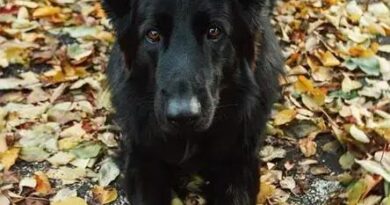What is hunting dog training
What is Hunting Dog Training?
Hunting dog training is a specialized process aimed at preparing dogs for hunting activities. This training focuses on developing the natural instincts of the dog, enhancing their ability to track, retrieve, and point out game. It involves a combination of obedience training, socialization, and exposure to various hunting scenarios, ensuring that the dog can perform effectively in the field.
The Importance of Early Training
Starting hunting dog training at an early age is crucial for success. Puppies are more receptive to learning and can absorb commands and skills more effectively. Early training helps in establishing a strong bond between the dog and the handler, which is essential for effective communication during hunts. Additionally, early exposure to different environments and stimuli prepares the dog for the challenges they will face in the field.
Basic Commands in Hunting Dog Training
Basic commands such as sit, stay, come, and heel are foundational in hunting dog training. These commands not only ensure the dog’s safety but also enhance their performance during hunts. A well-trained dog should respond promptly to commands, allowing for better control in various hunting situations. Consistency and positive reinforcement are key elements in teaching these commands effectively.
Socialization and Exposure
Socialization is a critical aspect of hunting dog training. Dogs need to be exposed to different people, animals, and environments to develop confidence and adaptability. This exposure helps prevent behavioral issues and ensures that the dog can remain calm and focused during hunts. Training sessions should include various scenarios, such as encounters with other wildlife, different terrains, and various weather conditions.
Advanced Skills for Hunting
Once basic commands are mastered, training can progress to more advanced skills specific to hunting. This includes scent training, tracking, and retrieving. Scent training involves teaching the dog to recognize and follow specific scents, which is essential for locating game. Tracking skills enable the dog to follow trails left by animals, while retrieving skills ensure that the dog can bring back the game to the handler efficiently.
Using Positive Reinforcement
Positive reinforcement is a powerful tool in hunting dog training. Rewarding desired behaviors with treats, praise, or play encourages the dog to repeat those behaviors. This method fosters a positive learning environment and strengthens the bond between the dog and handler. It is essential to be patient and consistent, as each dog learns at its own pace.
Health and Fitness Considerations
A hunting dog must be in excellent physical condition to perform effectively. Regular exercise, a balanced diet, and routine veterinary check-ups are vital components of a hunting dog’s training regimen. Fitness training can include activities such as running, swimming, and agility exercises, which help build stamina and strength, ensuring the dog is ready for the demands of hunting.
Choosing the Right Breed for Hunting
Not all dog breeds are suited for hunting. Breeds such as Labrador Retrievers, German Shorthaired Pointers, and Beagles are known for their hunting capabilities. When selecting a breed, consider factors such as temperament, energy level, and natural instincts. Each breed has unique traits that can influence their performance in hunting scenarios, making breed selection an essential part of the training process.
Common Challenges in Hunting Dog Training
Training a hunting dog can come with its challenges. Common issues include distractions, lack of focus, and stubbornness. Handlers must be prepared to address these challenges with patience and creativity. Implementing varied training techniques and maintaining a positive attitude can help overcome obstacles and ensure a successful training experience.
Continuing Education and Training
Hunting dog training is an ongoing process. Even after initial training is complete, it is essential to continue reinforcing skills and introducing new challenges. Regular practice sessions, participation in hunting activities, and attending training classes can help maintain a dog’s skills and keep them sharp for hunting seasons. Continuous education ensures that both the dog and handler remain proficient and confident in their abilities.



